World? Cronenberg. Cronenberg? World.
A man stands at the head of a half-empty press room. The man describes a new telekinetic technique to the congregation. He recites a long list of possible health side-effects, as if the technique were a new prescription drug. There are approximately two dozen people in attendance, and most of them look bored. He wishes to demonstrate the technique in person, and asks for a volunteer.
A man with slick hair obliges, rising from his seat. He strides to the table and sits next to the first man. The first man begins straining and retching in a visual manifestation of his flowing mental juices. Both men begin to show signs of discomfort. Slowly, the expression on the volunteer’s face turns from pain to pleasure. He begins writhing, apparently near orgasm. The first man is now in great distress. His head explodes, spattering the table with blood, and shocking the stadium-seated onlookers to their senses.
This is the scene responsible for making an international star of Canadian auteur David Cronenberg, and arguably, for validating the very idea of Canadian exploitation films. The year is 1981, and the film is Scanners.
Scanners is the tale of a great awakening for a drifter named Cameron Vale (Stephen Lack). Unbeknownst to him, he is a “scanner,” a person with telepathic and telekinetic powers. But to him, it’s just an ailment that keeps him from finding peace in life. Vale becomes a wanted man, and is drawn into a struggle between the super-corporation looking to weaponize scanner abilities, and the rogue scanner out to stop it. After Scanners, there could be no mistaking that David Cronenberg was a unique force in filmmaking.
The film has industrial espionage, sci-fi action, exploitative gore, and a dash of horror. Despite its lack of sexual dysfunction, Scanners is right in line with the rest of Cronenberg’s early work. Yet, at the same time, it isn’t. While the screenplay hints at Cronenberg’s deep wellspring of talent and imagination, not to mention a distinct worldview, much of it was written on set, in the wee hours between shooting sessions, which couldn’t have been ideal conditions.
Stories from the Scanners set indicate there were struggles associated with a compressed production timeline, not uncommon in Canada at the time. Similar tales have come to light regarding a few of Cronenberg’s films, and yet, very rarely do his films present a hurried lack-of-polish, even intermittently, like Scanners does. It would seem that Scanners succeeded in spite of itself. It’s telling that Cronenberg’s films would never again require such qualification.
Scanners is a fine film, if not a prime example of its creator’s work. The big showpieces still hold up, the outbursts of gore are still shocking, and the makeup is unforgettable. The signature “exploding head” scene was infamously intended to open the film, before being pushed back about 10 minutes in response to test screenings. While the fix worked fine, the pacing issues of the latter half went unattended to. That Scanners sags a bit is almost beside the point. It is just an historical oddity that Scanners is something of a turning point in Cronenberg’s career. The film certainly has its pleasures, but it seems fair to suggest that Scanners‘ legacy continues to be longer than its shadow.
In fairness, there are three showcase scenes in Scanners; the intro of Michael Ironside’s Darryl Revok (detailed above), Vale scanning a computer system through a phone line, and the pyro-maniacal scanner showdown between Revok and Vale at the finale.
The famed “exploding head” is the primary touchstone from Scanners. It’s the kind of gruesome spectacle that allows the film to be mentioned in the same breath as such classics as Alien, and Raiders of the Lost Ark. Alien‘s gory chest-burster debuted in May of 1979, while the similarly memorable melting face from the end of Raiders made its way to theaters a few months after Scanners in June of 1981. Chest-burster, exploding head, melting face. Not bad company. Talk about casting a long shadow.
That is not to say that Scanners vaulted Cronenberg into the same stratosphere as Steven Spielberg. The doors may have been open, but an honest assessment of Cronenberg’s career would suggest that making massively budgeted films within the Hollywood system never seemed to be a priority to him. While Scanners brought many opportunities (including an offer to direct Return of the Jedi), Cronenberg has maintained a ferociously independent career. For all the access to top Hollywood talent and financing, he never even made a film outside of his native Canada until 2014, when he ventured to Los Angeles to shoot the Hollywood satire Maps to the Stars.
Rightly lauded for his early contributions to horror and science fiction, as well as the more (superficially) mature meditations of his recent output, Cronenberg has led a charmed life as a filmmaker. Despite a propensity for the fantastical and the horrific, he has managed to inject his demented intellection into films in a number of genres. Up through Scanners, his skill was still developing and partly obscured by circumstance. For this reason, Scanners ultimately does serve as a neat turning point in his career, and if this modest hit is what we all have to thank for the rest of Cronenberg’s illustrious career, then maybe it’s worthy of its outsize reputation after all.
Follow along with the other participants in the Criterion Blogathon, hosted by Criterion Blues, Speakeasy, and Silver Screenings. Click here for the full roster.

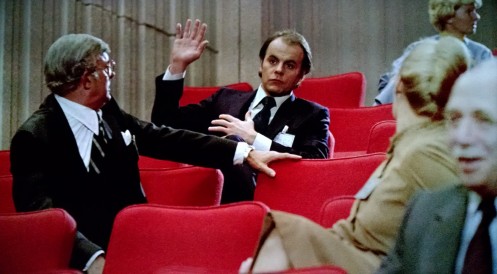
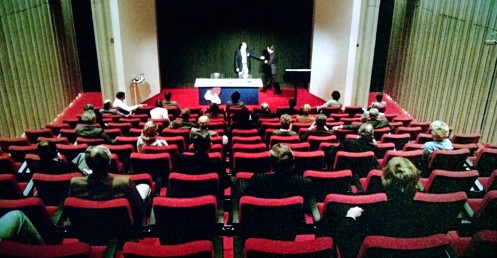

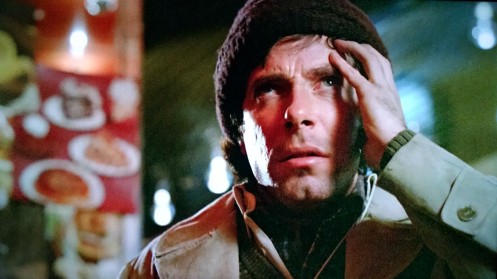
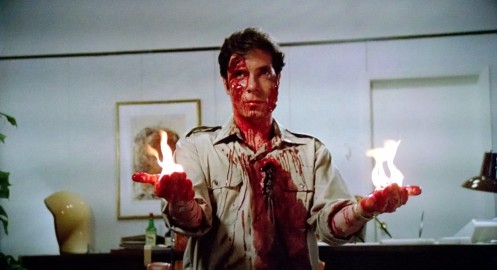
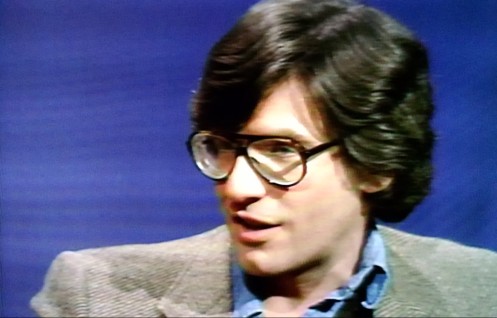
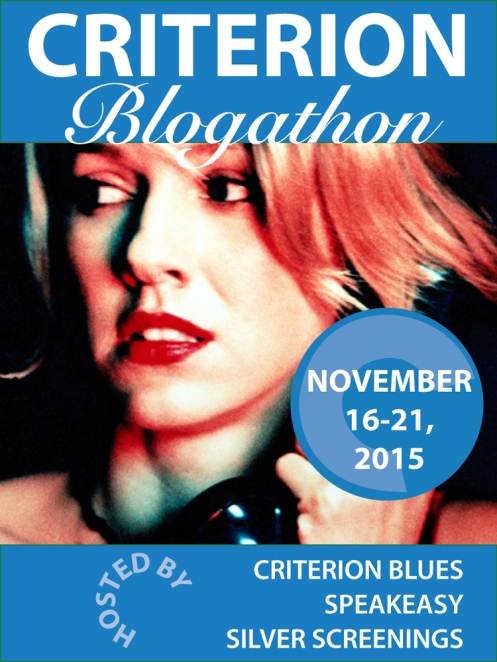
Nice post! I agree the the exploding head and the vein-popping finale are the highlights, and there is a lull, but it still is a fine film. My main quibble is the lead performance, but that was not uncharacteristic of Cronenberg. Have you seen The Brood? It is my favorite from this era.
Thanks for reading! I very recently saw The Brood for the first time–just picked up the new Criterion edition last week. I thought it was a great film. I preferred it to Scanners, but from a purely historical point of view, Scanners occupies an arguably more pivotal moment in Cronenberg’s career. I’ve posted about a few of his works before. Maybe The Brood will be next. I’m already looking forward to revisiting it!
Agreed. We podcasted about The Brood and early Cronenberg a few weeks ago, but we didn’t cover Scanners. Agreed that Scanners, and specifically the exploding head, exploded (sorry!) his career. And I like that he has remained loyal to his art and country. Thanks again!
You know, I’ve always respected David Cronenberg for making almost all of his films in Canada and not completely succumbing to the Hollywood siren call.
Great post. Thanks for joining the blogathon!
My pleasure. Thanks for having me!